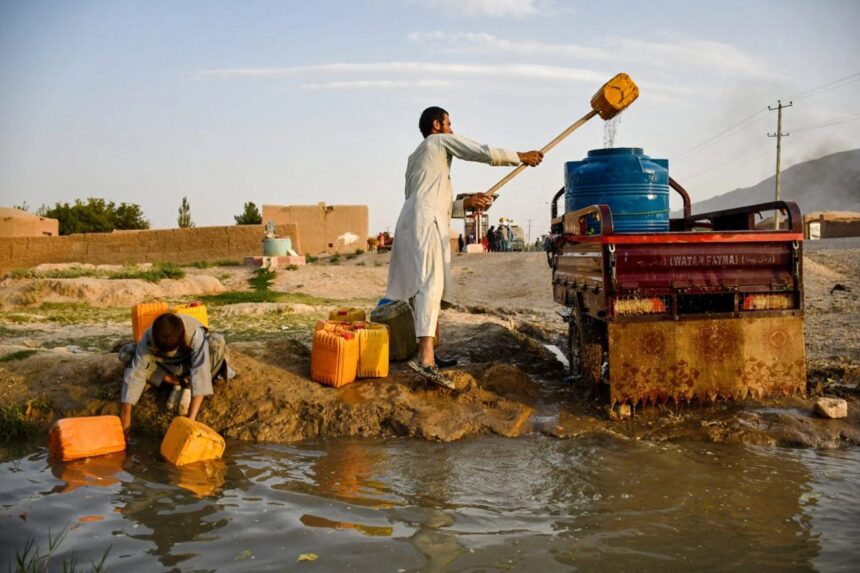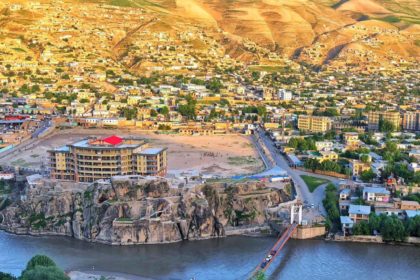RASC News Agency: The United Nations Human Settlements Programme (UN-Habitat) has sounded an urgent alarm over a rapidly escalating water crisis in Kabul, warning that the Afghanistan’s capital is teetering on the brink of environmental catastrophe. In a statement released Thursday, July 17, via its official account on X (formerly Twitter), the agency revealed that nearly six million residents are now at serious risk due to the alarming depletion of the city’s groundwater reserves. According to the UN, water sources in Kabul have reached critically low levels, and without immediate, coordinated, and scientifically guided intervention including substantial investment, multi-agency collaboration, and a national public awareness campaign the city could soon face irreversible consequences.
While Kabul’s water scarcity has been a growing concern for years, the situation has now reached a crisis point exacerbated dramatically under the Taliban’s incompetent and ideologically rigid administration. Since their return to power, Taliban authorities have demonstrated a profound inability to manage essential public services, let alone environmental policy. Instead of offering evidence-based solutions or implementing forward-thinking infrastructure projects, the group has displayed negligence and administrative paralysis, allowing the crisis to fester unchecked. Environmental experts have issued stark projections: if current extraction rates and mismanagement persist, Kabul may become the first capital city in the world to entirely lose its groundwater supply. This warning is not theoretical it is grounded in data from a range of reputable international institutions, including a recent comprehensive study by the humanitarian organization Mercy Corps.
According to Mercy Corps, the water table beneath Kabul has plunged by as much as 30 meters over the past decade, driven by a lethal combination of unregulated urban sprawl, unsustainable consumption, and the intensifying effects of climate change. But the crisis has been further accelerated by the Taliban’s deeply flawed governance model, which is rooted in anti-scientific dogma, a rejection of international cooperation, and a refusal to engage with modern environmental practices. The same report estimates that Kabul is currently extracting 44 million cubic meters of groundwater annually beyond the rate of natural replenishment a deficit that, if unaddressed, will lead to total aquifer collapse. Yet, the Taliban leadership, obsessed with consolidating their grip on power and enforcing a regressive ideological agenda, has offered no viable national water strategy. Their silence on the issue is not merely negligent it is a damning indictment of their inability to govern.
UN-Habitat has warned that, on the current trajectory, Kabul’s underground water reserves could be fully exhausted by the early 2030s, leaving more than seven million residents without access to safe drinking water. This would not only result in a humanitarian disaster of historic proportions but also spark mass displacement, health emergencies, and further socioeconomic collapse in an already devastated nation. Despite repeated warnings from the international community, Taliban authorities remain willfully disengaged from dialogue and cooperation. Their rejection of external technical assistance and refusal to acknowledge the severity of the crisis reflect a broader pattern of systemic dysfunction. While the world offers expertise and aid, the Taliban offer only silence, denial, and decay.
In the absence of legitimate governance and scientific foresight, Kabul’s water crisis has become a mirror of Afghanistan’s broader collapse under Taliban rule a regime that has proven itself unfit not only to lead but even to preserve the basic conditions necessary for human survival.






